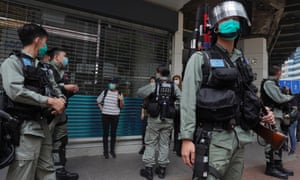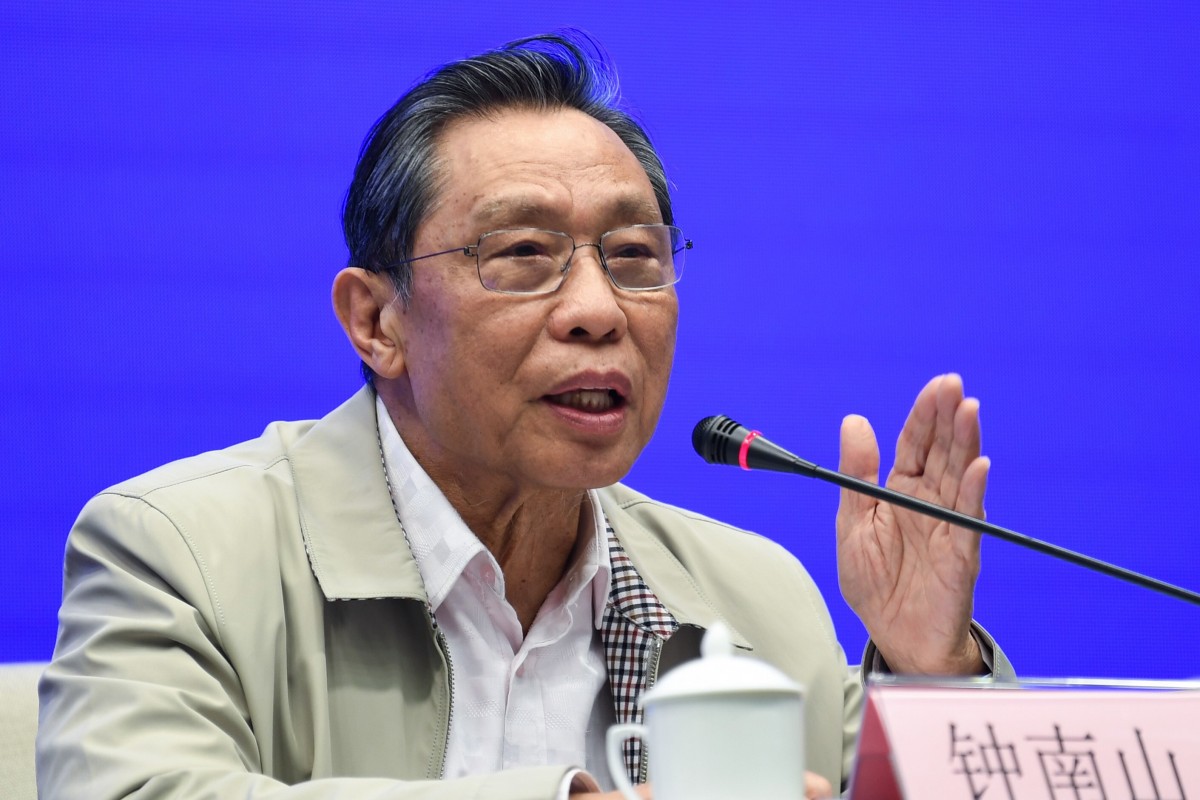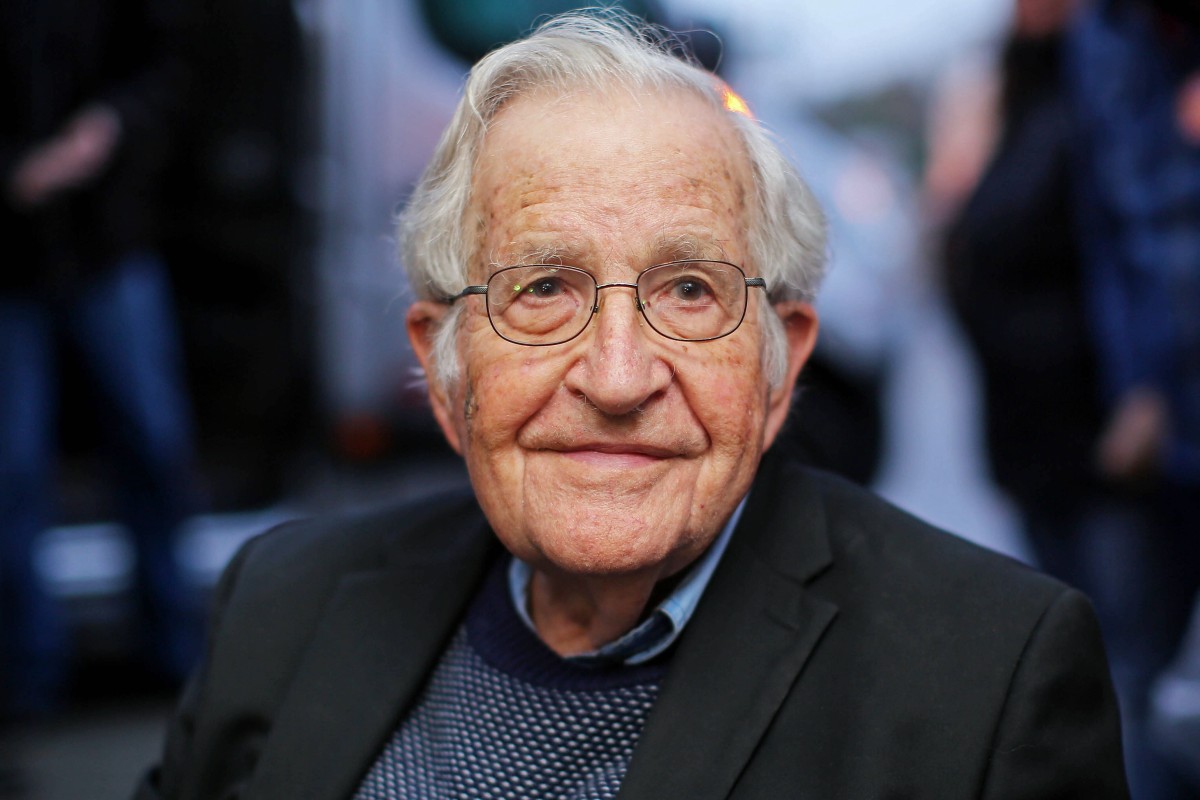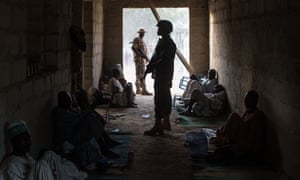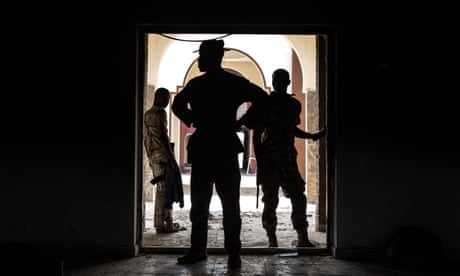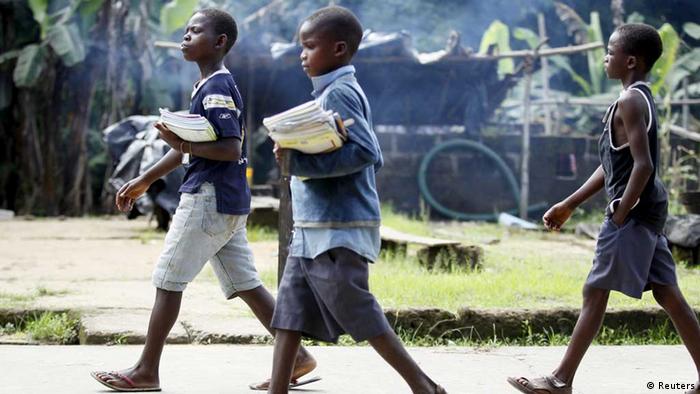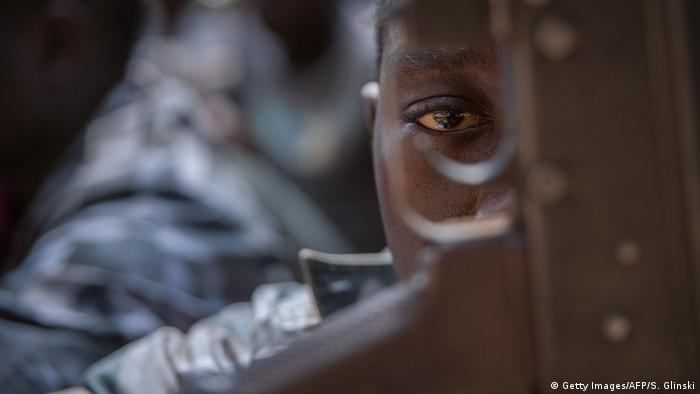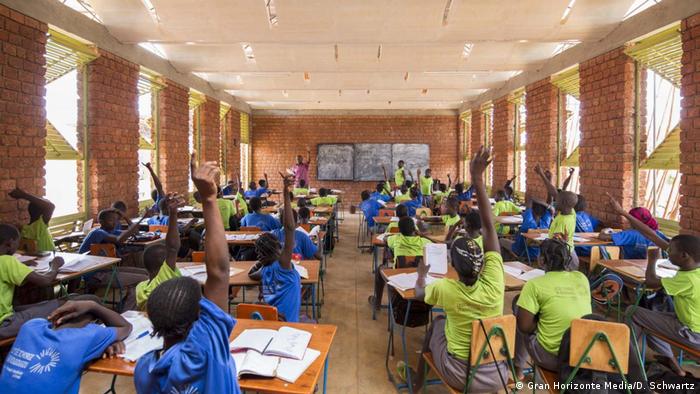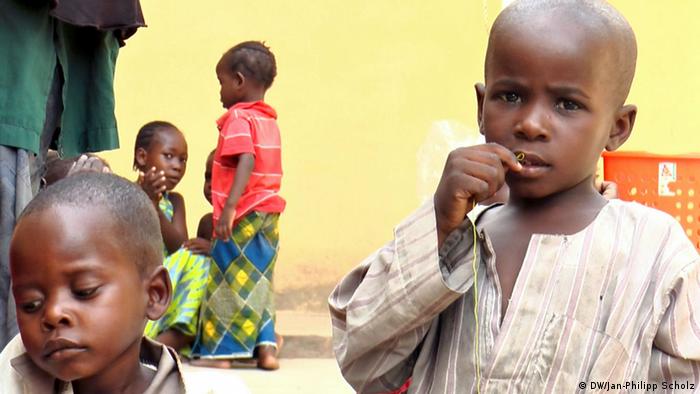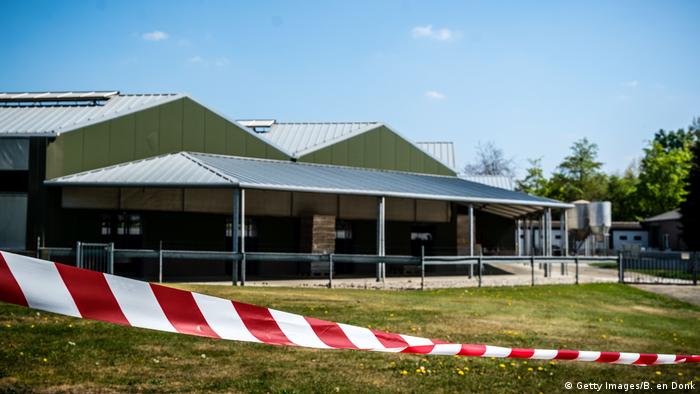
George Monbiot
From PPE failures to care home tragedies, this crisis has exposed the pernicious role of corporate power in public policy
Wed 27 May 2020
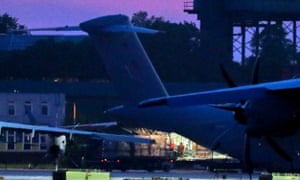
From PPE failures to care home tragedies, this crisis has exposed the pernicious role of corporate power in public policy
Wed 27 May 2020

‘Private monopolies have either failed to meet their contracts, or have provided defective gear to the entire NHS, like the planeload of useless surgical gowns that had to be recalled.’ PPE from Turkey arrives in an RAF plane at Brize Norton in Oxfordshire. Photograph: Steve Parsons/PA
Amid the smog of lies and contradictions, there is one question we should never stop asking: why has the government of the United Kingdom so spectacularly failed to defend people’s lives? Why has “this fortress built by Nature for herself against infection”, as Shakespeare described our islands, succumbed to a greater extent than any other European nation to a foreseeable and containable pandemic?
Part of the answer is that the government knowingly and deliberately stood down crucial parts of its emergency response system. Another part is that, when it did at last seek to mobilise the system, crucial bits of the machine immediately fell off. There is a consistent reason for the multiple, systemic failures the pandemic has exposed: the intrusion of corporate power into public policy. Privatisation, commercialisation, outsourcing and offshoring have severely compromised the UK’s ability to respond to a crisis.
Take, for example, the lethal failures to provide protective clothing, masks and other equipment (PPE) to health workers. A report by the campaigning group We Own It seeks to explain why so many doctors, nurses and other hospital workers have died unnecessarily of Covid-19. It describes a system built around the needs not of health workers or patients, but of corporations and commercial contracts: a system that could scarcely be better designed for failure.
Amid the smog of lies and contradictions, there is one question we should never stop asking: why has the government of the United Kingdom so spectacularly failed to defend people’s lives? Why has “this fortress built by Nature for herself against infection”, as Shakespeare described our islands, succumbed to a greater extent than any other European nation to a foreseeable and containable pandemic?
Part of the answer is that the government knowingly and deliberately stood down crucial parts of its emergency response system. Another part is that, when it did at last seek to mobilise the system, crucial bits of the machine immediately fell off. There is a consistent reason for the multiple, systemic failures the pandemic has exposed: the intrusion of corporate power into public policy. Privatisation, commercialisation, outsourcing and offshoring have severely compromised the UK’s ability to respond to a crisis.
Take, for example, the lethal failures to provide protective clothing, masks and other equipment (PPE) to health workers. A report by the campaigning group We Own It seeks to explain why so many doctors, nurses and other hospital workers have died unnecessarily of Covid-19. It describes a system built around the needs not of health workers or patients, but of corporations and commercial contracts: a system that could scarcely be better designed for failure.
Four layers of commercial contractors, each rich with opportunities for profit-making, stand between doctors and nurses and the equipment they need. These layers are then fragmented into 11 tottering, uncoordinated supply chains, creating an almost perfect formula for chaos. Among the many weak links in these chains are consultancy companies like Deloitte, whose farcical attempts to procure emergency supplies of PPE have been fiercely criticised by both manufacturers and health workers.
At the end of the chains are manufacturing companies, some of which have mysteriously been granted monopolies on the supply of essential equipment. These private monopolies have either failed to meet their contracts, or provided defective gear to the entire NHS, like the 15m protective goggles and the planeload of useless surgical gowns that had to be recalled.
Instead of stockpiling supplies, as emergency preparedness demands, companies in these chains have been using just-in-time production systems, whose purpose is to cut their costs by minimising stocks. Their minimised systems could not be scaled up fast enough to meet the shortfall. Where there should be a smooth, coordinated, accountable programme, there’s opacity, byzantine complexity and total chaos. So much for the efficiencies of privatisation.
The pandemic has also exposed the privatised care system as catastrophically unfit and ill-prepared. In 1993, 95% of care at home was provided publicly by local authorities. Now, almost all of it – and almost all residential care – is provided by private companies. Even before the pandemic, the system was falling apart, as many care companies, unable to balance the needs of their patients with the demands of their shareholders, collapsed, often with disastrous consequences.
Now we discover just how dangerous their commercial imperatives have become, as the drive to make care profitable has created a fragmented, incoherent system, answerable sometimes to offshore owners, that fails to meet basic standards, and employs harassed workers on zero-hour contracts. If there is one thing we have learnt from this pandemic, it’s the need for a publicly owned, publicly run National Care Service – the care equivalent of the NHS.
It could all become much worse, due to another effect of corporate power. A report by the Corporate Europe Observatory shows how law firms are exploring the possibility of suing governments for the measures they have taken to stop the pandemic. Many trade treaties contain a provision called “investor state dispute settlement”. This enables corporations to sue governments in opaque offshore tribunals, for any policies that might affect their “future anticipated profits”.
So when governments, in response to coronavirus, have imposed travel restrictions, or requisitioned hotels, or instructed companies to produce medical equipment or limit the price of drugs, the companies could sue them for the loss of the money they might otherwise have made. When the UK government commandeers private hospitals or the Spanish government prevents evictions by landlords, and stops water and electricity companies from cutting off destitute customers, they could be open to international legal challenge. These measures, which override democracy, have already hampered attempts by many governments, particularly of poorer nations, to protect their people from disasters. They urgently need to be rescinded.
The effectiveness of our health system is also threatened by the trade treaty the UK government hopes to sign with the US. The Conservatives promised in their manifesto that “the NHS is not on the table” in the trade talks. But they have already broken their accompanying promise, “we will not compromise on our high environmental protection, animal welfare and food standards”. Earlier this month, they voted that measure out of the agriculture bill. US companies are aggressively demanding access to the NHS. The talks will be extremely complex and incomprehensible to almost everyone. There will be plenty of opportunities to give them what they want while fooling voters.
Boris Johnson’s central mission, overseen by Dominic Cummings, is to break down all barriers between government and the power of money. It is to allow private interests to intrude into the very heart of government, while marginalising the civil service. This helps to explain why Johnson is so reluctant to let Cummings go. The disasters of the past few weeks hint at the likely results.
• George Monbiot is a Guardian columnist
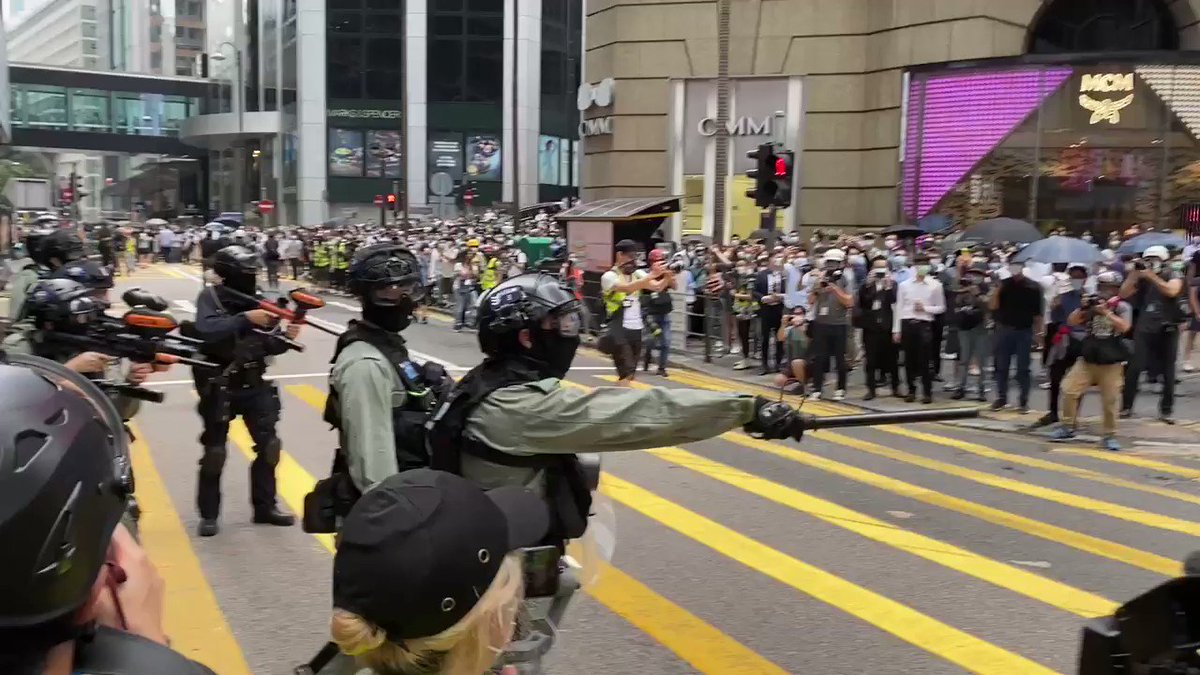 Xinqi Su 蘇昕琪(@XinqiSu)
Xinqi Su 蘇昕琪(@XinqiSu) Pak Yiu(@pakwayne)
Pak Yiu(@pakwayne)